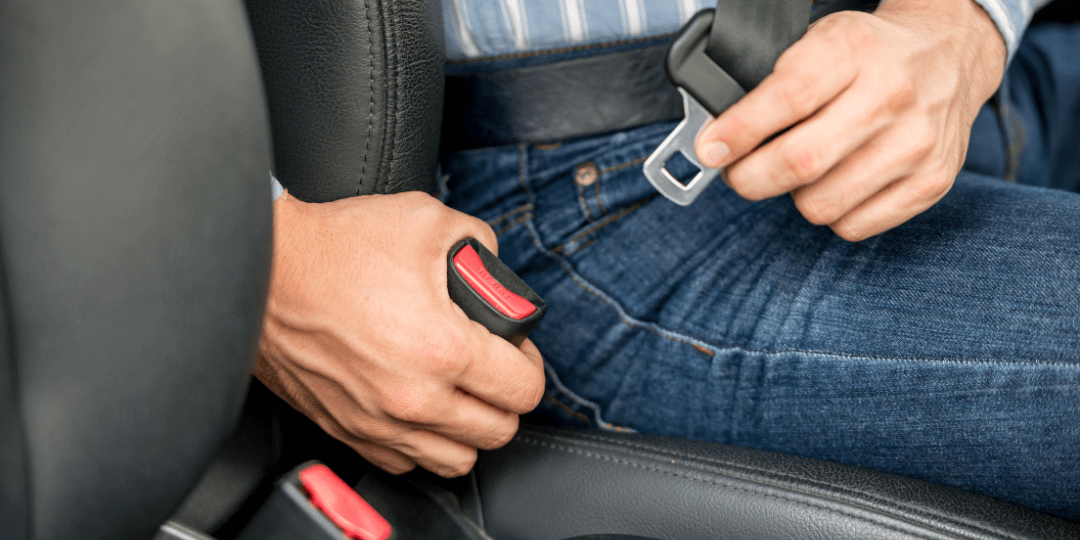10 Essential Tips to Keep Your Vehicle Safe on the Road
Foreign business travel is returning to pre-pandemic levels, and so it’s a good time for employers...
Foreign business travel is returning to pre-pandemic levels, and so it’s a good time for employers...

We all understand the importance of road safety, especially for frequent travellers. In our busy routines, we often forget basic safety procedures. Whether you're a new driver or have been driving for decades, take a moment to refresh your memory on how to stay safe on the road.
Here are ten practical safety tips to ensure the well-being of yourself and others:
1. Check your brakes: If you hear unusual noises, feel vibrations while braking, or notice differences in braking performance, get a professional brake check as soon as possible.
2. Keep an eye on your tyres: Before setting off on your journey, ensure your tyres have sufficient tread and are properly inflated. Use a tread depth gauge for accurate readings.
3. Top up your fluid levels: To ensure the smooth running of your vehicle, it’s important to check your fluid levels. Frequently check your vehicle's engine oil, coolant, brake fluid, and windscreen washer fluid, and make sure they’re topped up.
4. Familiarise yourself with dashboard lights: In the case that a signal light may appear on your dashboard whilst driving, it’s a good idea to periodically check your car's manual from time to time to familiarise yourself with the various symbols that help warn you if something is wrong.
5. Lights and signals: Well-functioning lights are a critical aspect of safe driving, so never overlook their maintenance. Verify that all exterior lights and signals (headlights, brake lights, turn signals, and hazard lights) are working correctly. It’s easier to do this if you can get someone to help you out. If any of your lights are not working correctly, it's essential to have them replaced immediately.
6. Replace or repair damaged windscreens: Before you set off on your journey, ensure that the windscreen is free from any chips or cracks that could impair visibility. If your windscreen encounters a crack or chip whilst driving which impairs your vision, find the nearest and safest place to stop and arrange for your windscreen to be repaired before you recommence your journey.
7. Stay alert: When driving, particularly on long journeys, distractions can arise, making it crucial to stay focused. Take regular breaks on long journeys to maintain focus and concentration. Plan your route before your journey, and use our site locator tool to help find convenient stops.
8. Keep an emergency pack in your car: Sometimes vehicles can be unpredictable and unexpected events can occur, therefore it’s good to be prepared. Always keep an emergency kit in your car including items like a first aid kit, a torch, and a flat tyre repair kit to help you handle any unforeseen situations that may arise.
9. Adjust your driving to the surrounding conditions: If it’s snowing, foggy, or torrential rain, adjust your driving to the conditions to ensure that you keep yourself and others safe. When driving in these conditions you should allow for longer braking distances, and avoid sudden manoeuvres or harsh braking.
10. Buckle up and follow basic driving safety: Last but finally not least, always ensure that you and all of your passengers are wearing a seatbelt, and that you follow the basic highway code at all times. Whilst some modern vehicles come equipped with safety features, it’s important not to solely depend on them. As a driver, you are also responsible for ensuring that you’re safe on the road.
Road safety is paramount for all travellers, and these ten practical tips are essential for ensuring the safety or yourself and others on the road. Remember to stay vigilant, keeping your vehicle well-maintained, and always priortise safety on your journeys. Safe travels!